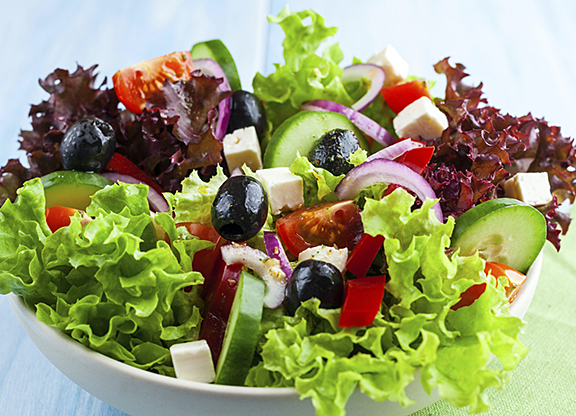How to Keep Your New Year’s Resolutions
To make a New Year’s Resolution or to not make a New Year’s Resolution. What will you do this year? Some of the most popular resolutions we’ve made in the past were to lose weight, exercise more and eat healthier. Let’s face it, this isn’t our first go at an attempt to make a New Year’s Resolution and keep it. One thing we’ve learned from our past experience is that keeping a resolution is much harder than making one. The truth is, 80% of New Year’s resolutions fail within the first year and 20% of resolutions are broken within the first week of January. 
Let’s take a minute to talk about why resolutions fail.
You Don’t Have a Plan
We’ve all heard the saying “failing to plan is planning to fail.” This my friends couldn’t be any further from the truth. Losing weight means changing up your routine. Whether you’re cooking healthier meals or setting aside some time to head to the gym, it’s important to have a plan. Schedule time for meal planning, cooking and your workouts if you want to be successful at reaching your goals.
Lack of Motivation
You need to stay motivated if you want to succeed. Think about why you want to lose weight and find something that will keep you motivated. Whether it’s to have more energy to keep up with your kids, lose a few pounds or just look good in a bathing suit, it’s important to have a clear picture of what you want and why you want it. If you want to achieve your goals, you need to stay committed and follow through.
Lack of Support
Look for a gym buddy who shares similar fitness goals and work towards reaching them together. Sharing your resolution with someone that is on the same journey can definitely help you stay on track. Having someone hold you accountable for your “no more soda” resolution makes it harder to have “just one Coke.” Plus, you’ll have someone to meet up with at the gym. You wouldn’t want to leave your workout partner hanging, would you?
Unrealistic Goals
Setting unrealistic goals can set you up for disappointment and failure. Work with a personal trainer or fitness professional who will help you set a realistic weekly weight loss goal. He or she can also give you tips on how to achieve your fitness goals more efficiently and effectively.
You Fall Off the Wagon
Sometimes one slip up, like skipping the gym for a day or eating a few slices of pizza at work, can derail an entire resolution. Just remember that everyone falls off the weight loss wagon from time to time! Focus on getting back on track the next day instead of throwing in the towel and giving up.

How to Turn Your Weight Loss Resolution into a SMART Goal
A SMART goal is specific, measurable, achievable, relevant and timely. I would suggest that you pick one goal at a time so you don’t get distracted and become overwhelmed.
SMART Weight Loss Goal Ideas
• I will lose one pound a week until I reach XX pounds in three months.
• I will lose six pounds a month until I reach XX pounds in one year.
Set the amount of weight loss that works for you – a specific, measurable number of pounds. Make sure the number is achievable and be sure to set a deadline for your end goal to keep yourself on track.
You should also set a goal for how you plan to lose weight. Whether you plan on focusing on healthier eating habits, exercising more or a combination of the two, having a goal will help you stick to the plan.

Here’s a few Examples of Nutrition and Exercise SMART Goals
• I will show up for 2 group fitness classes a week
• I will eat protein with every meal
• I will bring my lunch to work instead of eating out
• I will work out for 45 minutes, three times a week
Most weight loss comes from decreasing your caloric intake. Talk to your doctor or a registered dietician for help with making healthier food choices and setting a nutrition plan that works for your lifestyle. If you work with a certified personal trainer, he or she can help you in that department, too. Track what you eat using an app or a journal to keep yourself accountable. 
10 Nutrition Tips for Keeping Your New Year’s Resolution
1. Find out what drives you to eat (stress, anxiety, sadness, etc.) and find something else to do instead. Take a walk, read a book or call a friend.
2. Limit added sugars (sugars in cookies, cakes, ice cream).
3. Cut out liquid calories like alcohol, soda, and juice and replace them with water instead.
4. Choose whole grain breads and cereals.
5. Eat 5 to 6 small meals each day.
6. Include lean protein (fish, lean meat, poultry, nuts, beans and more).
7. Choose carbs that are low on the glycemic index (most fruits and vegetables, beans, minimally processed grains, pasta, low-fat dairy foods and nuts).
8. Eat more fiber to help you feel full (foods high in fiber include artichokes, green peas, lentils, broccoli and lima beans).
9. Enjoy small amounts of healthy fat (found in fish, nuts, seeds and olive oil).
10. Stop eating when you are full.

Greek Salad
In Conclusion:
If you’re looking for the New Year, New You mindset, you’re not alone. Most of us have good intentions and do our best to start the New Year off on the right foot!
While changing your eating habits can help you lose weight, remember to stay active to maintain it. So, let’s get moving Central New York! It’s time to get healthier and fit. Good luck to you.











